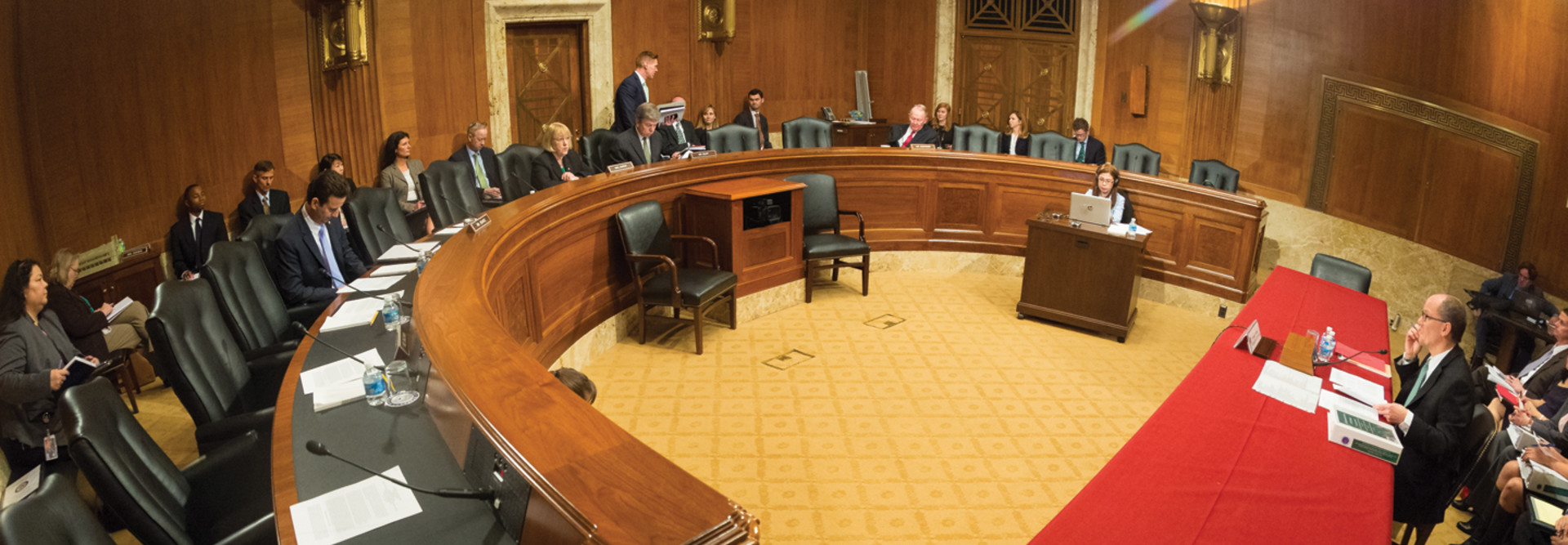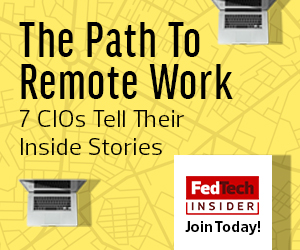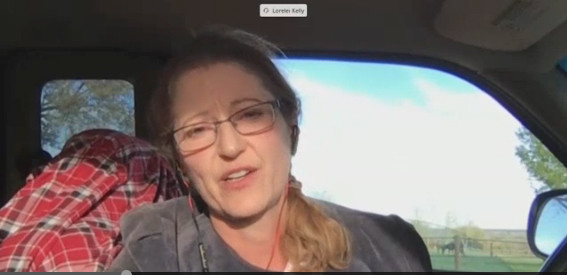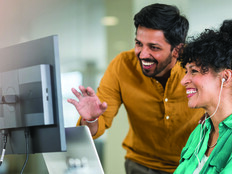Before joining the U.S. Senate’s first-ever virtual hearing, Lorelei Kelly drove a truck all over her family farm in New Mexico, looking for the best internet connection on the 23-acre property.
“In rural America, you never know if you will have a signal,” says Kelly, director of congressional modernization at Georgetown University’s Beeck Center for Social Impact and Innovation.
On April 30, she served as one of three witnesses on the Senate’s Permanent Subcommittee on Investigations’ hearing on the importance of allowing the Senate to meet and vote remotely in times of crisis.
When Georgetown closed its Washington, D.C., campus in March because of the novel coronavirus, Kelly drove to her family’s farm in San Juan County, N.M., to shelter in place and work remotely.
In doing so, she’s learned about the trials and tribulations of trying to get access to rural broadband. Every day, the location with the best cellular connection changes. So, before the virtual hearing began, she drove her sister’s truck around for 10 minutes before finding the best internet connection, next to a shed. She parked and used her iPad device’s cellular connection to jump on the Cisco Webex videoconference.
Remote Testimony Beamed in Via a Strong Connection
While Sen. Rob Portman, R-Ohio, the subcommittee’s chair, and other participants were in offices, Kelly gave her testimony in the truck’s cab, with horses in the background.
“It went really well. The old truck was a great little coworking space, and honestly, I was doing cartwheels that I had such a strong internet connection,” Kelly says.
During a nearly two-hour roundtable discussion, participants talked about how the Senate can use technology to remotely debate and vote during a major crisis, such as the current pandemic. Portman and Sen. Dick Durbin, D-Ill., have introduced a resolution to allow Congress to vote remotely during national emergencies.
On the day of the virtual hearing, the subcommittee released a report explaining that the Senate can use off-the-shelf technology to secure remote voting, including encryption, blockchain and multifactor authentication that includes one-time passwords and biometric scanning.
Meeting Participants Can Speak Virtually from Anywhere
In her opening statement during the virtual hearing, Kelly said the country was at a pivotal moment in its democracy.
“The urgency to restore a functional legislature increases with every moment. Will Congress join the rest of society, not to mention several other legislatures in the U.S. and around the world, and let the technology enable us to carry on with the operations of the first branch, where we maintain the promise set forth in Article 1 of our Constitution? Or will we let more time slip away as unprecedented taxpayer dollars are spent?” she asked.
“As checks and balance go awry, and as Americans far and wide look to congressional leaders to inform us, unify us and to help push through this crisis, let us choose the first option.”
After Kelly’s testimony, Sen. Tom Carper, D-Del., the subcommittee’s ranking member, pointed out the contrast of her sitting in a truck on a farm, while nearly everyone else in the videoconference was indoors, including senators Mitt Romney, R-Utah; Josh Hawley, R-Mo.; and James Lankford, R-Okla.
“The pickup truck you are sitting in — is that your truck?” Carper asked.
Lorelei Kelly of the Beeck Center for Social Impact and Innovation testified before the Senate from a truck. Source: U.S. Senate
Kelly replied, “This is a 1998 Dodge truck that is used for hauling on this farm. It is my sister’s truck.”
Carper then complimented her on her ability to give testimony in such a unique location: “When you gave your testimony, were you speaking extemporaneously or were you reading?”
Kelly explained that she had found a free, web-based teleprompter app, so she read her opening statement. And then she added with a laugh, “I’m glad it looked like I knew what I was doing, and I guess it worked.”
Virtual Hearing Results: ‘We Proved We Can Do This’
There was a moment near the end of the hearing where network jitter caused Carper’s final statement to become garbled. But overall, the virtual hearing went flawlessly and has inspired other Senate committees to hold virtual hearings, including the Committee on Homeland Security and Governmental Affairs (the parent committee to Portman’s subcommittee) and the Committee on Banking, Housing, and Urban Affairs.
Overall, Kelly says she was pleased to take part in the virtual hearing.
“It was a big first step,” she says. “The hearing was about being a proof of concept, and we proved we can do this.”
READ MORE: Find out how federal agencies took their meetings online amid the pandemic.
U.S. Department of Labor














